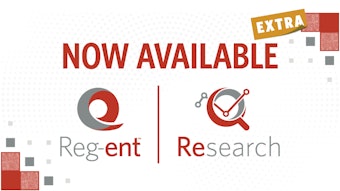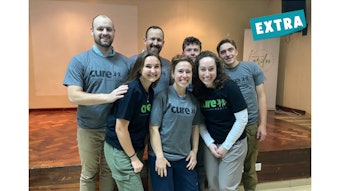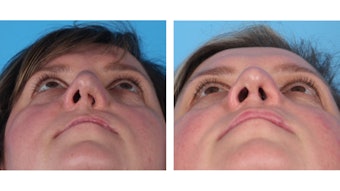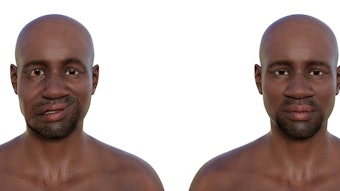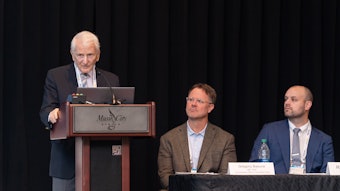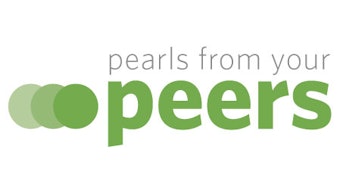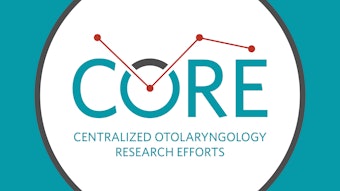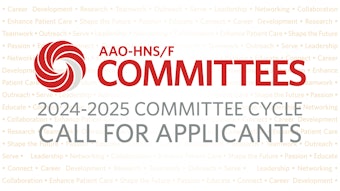Bridging the Equity Gap in Global Otolaryngology Research
Despite efforts to recognize the importance of equitable research collaborations, there is often a paucity of meaningful engagement and commensurate recognition through authorship.
Farizeh Jashek-Ahmed, MBMS, Nader G. Zalaquett, BS, Rolvix H. Patterson, MD, MPH, Estephania Candelo, MD, MSc, Sarah Nuss, BA, Mary Jue Xu, MD, Johan J. Fagan, MD, Samuel Okerosi, MMed

Setting the Research Agenda
Global health research is plagued by a power imbalance between HIC and LMIC researchers.1 The scarcity of available research resources in many LMICs, such as grant funding mechanisms, research training, and institutional research infrastructure, have limited the opportunity for LMIC researchers to play a central role in identifying the priority research questions. Given these barriers, a shared set of priorities is needed to ensure that international collaborative research aligns with local needs, offers professional benefit to local researchers, and provides maximal impact for local communities. We highlight the Global OHNS Initiative Research Equity Guidelines as one means to promote equitable collaborations.2 Among other recommendations, these guidelines stipulate that all research should include local representation from the very outset. By adopting these principles, not only in otolaryngology collaborations but more broadly in global health, we can strengthen research and foster a collaborative environment that truly serves the diverse needs of communities worldwide.
Overcoming Barriers to Conducting Research
Opportunities to engage in research remain sparse for many surgeons around the world, especially in LMICs. There is significant variability in the prioritization of research, opportunity for methodological training, availability of learning resources, and cost of accessing scientific literature, among others. To support these otolaryngologists in conducting independent, high-quality, and policy-relevant research, it is crucial to address these obstacles systematically.
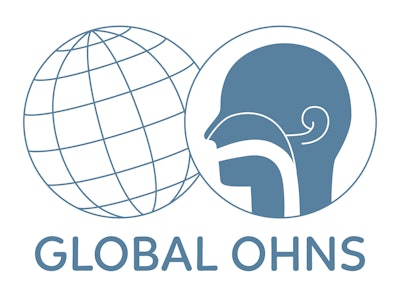
The Global OHNS Initiative recently expanded its efforts by introducing a formal Research Mentorship Program (RMP) with the objective of addressing knowledge gaps and barriers to otolaryngology research for underrepresented and under-resourced otolaryngologists. It aims to advance research equity by providing access to otolaryngology research and offering education opportunities to aspiring researchers globally, including a yearlong research training curriculum. One notable aspect of the Global OHNS Initiative's RMP is its commitment to fostering collaboration between mentors and mentees from HICs and LMICs, facilitating knowledge exchange, mutual learning, and understanding. In its first year, the RMP garnered significant interest, attracting 131 mentee applicants and 15 mentor applications. There were 23 mentees from 16 different countries selected to participate in the program. As they embark on their year of research and mentorship, we are confident that these mentees and mentors will drive progress in research equity and conduct high-value research that will contribute to strengthening otolaryngology care.
Improving Access to Scientific Research
LMIC researchers are further hindered by costly access to scientific literature, which is often freely available to their HIC counterparts. Programs such as the World Health Organization’s Health Internetwork Access to Research Initiative (HINARI) aim to narrow this gap by providing free access to peer-reviewed scientific journals, publications, and databases to academic, government, and research institutions in low-income countries.4
The rise of the open access model has largely been welcomed by global health researchers as a positive step toward widening access to medical literature. The potential impact of these freely available articles is demonstrated in their higher citation rates compared to subscription-restricted papers.5 However, open access publishing is often associated with expensive article-processing charges (APCs). This model is also often used by predatory publishers who charge high fees for publication but lack rigorous scientific quality control.
Within otolaryngology, the average APC is $2,900 USD, and only 33% of journals offer APC waivers.14 A recent survey found the average monthly income of an LMIC otolaryngologist to be less than $1,500 USD, highlighting that APCs are often unaffordable. This reality hinders career progression and inhibits the dissemination of LMIC research.6 In response, the Global OHNS Initiative has launched an advocacy effort to develop innovative strategies to improve equity in otolaryngology publishing.
Inadequate Representation from Low- and Middle-Income Countries
In 2015, a systematic review found that 24% of surgical papers conducted in low-income countries were written exclusively by foreign nationals from HICs.7 In recent years, despite a shift toward more collaborative research, the contributions of LMIC otolaryngology authors remain poorly recognized. This disparity is particularly apparent in the first and senior author positions. Furthermore, LMIC authors are less likely to be published in high impact factor journals.
A 10-year review of authorship trends in high-impact factor otorhinolaryngology journals reported only 6% of first authors were from LMICs, with the majority (82%) affiliated with upper-middle-income countries such as Turkey, China, Brazil, and India. Concerningly, there were zero publications with a low-income country first author.8
The discussion around authorship equity has encouraged many journals to adopt the International Committee of Medical Journal Editors (ICMJE) authorship guidelines.9 These guidelines aim to improve transparency and provide appropriate credit to contributing authors. While the ICMJE guidelines offer valuable guidance for identifying authors, the universal applicability of these criteria in complex global research collaborations has been challenged.3,10
For example, adhering strictly to the ICMJE guidelines may not account for the circumstances and barriers faced by LMIC collaborators, and this may exacerbate authorship disparities. Conversely, relaxing authorship criteria to accommodate collaborators might risk token authorship and undermine the principles of fair recognition and contribution. As collaborative research grows, it will be essential to strike a balance acknowledging the diverse contexts of this research while maintaining rigorous authorship standards.
Gender Disparities in Authorship
Studies have shown marked gender disparities in academic authorship, particularly in LMICs.11 This trend is also prevalent in otolaryngology where women are underrepresented as authors. A recent Global OHNS Initiative study reviewed 2,988 publications in three high impact otorhinolaryngology journals, finding that women were first authors in 31.5% of articles and senior authors in 18.4%. The rate of women as first authors increased significantly between 2011 and 2020, but senior authorship remained stagnant.
The Lancet highlighted this issue more broadly in 2019 with a diversity pledge to increase the representation of women among their editorial advisers, peer reviewers, and authors.12 The Global OHNS Initiative has similarly sought to improve gender equity in research through several measures. First, the members formed a gender disparities working group. This collaboration has produced several publications, including research exploring how gender influences otolaryngology specialty selection, an important consideration for the future of research led by women.13 Additionally, this group published the previously cited article that examined trends in authorship by women.
Eliminating gender disparities in academic authorship will require a comprehensive effort within the field of otolaryngology. To start, we recommend that academic institutions and journals should implement policies and mentorship programs to support women's inclusion as authors. Promoting gender diversity among presenters and speakers at conferences can foster a more inclusive research environment. Furthermore, more research on the contributing factors is necessary to inform targeted interventions. By collectively embracing these strategies and others, the otolaryngology community can improve gender equity in research.
Conclusions
There are significant inequities in research across income status and gender in otolaryngology. Despite efforts to recognize the importance of equitable research collaborations, there is often a paucity of meaningful engagement and commensurate recognition through authorship. Through its research opportunities, research mentorship program, and ongoing advocacy, the Global OHNS Initiative has taken steps to address these issues. However, to truly bridge the equity gap in otolaryngology research, a comprehensive effort is required by otolaryngologists, journals, publishers, academic institutions, and professional societies. By uniting our efforts, the otolaryngology community can advance equity in research and serve as a model for research communities around the world.
References
- Hedt-Gauthier BL, Riviello R, Nkurunziza T, Kateera F. Growing research in global surgery with an eye towards equity. Br J Surg. 2019;106(2):e151-e5.
- Patterson RH, Xu MJ, Okerosi S, Bhutta MF, Der C, Alkire B, et al. Research Equity in Otolaryngology-Head and Neck Surgery. OTO Open. 2021;5(2):2473974X211024145.
- Rees CA, Sirna SJ, Manji HK, Kisenge R, Manji KP. Authorship equity guidelines in global health journals. BMJ Glob Health. 2022;7(10).
- Organisation WH. Hinari Access to Research for Health programme https://partnership.who.int/hinari
- Tennant JP, Waldner F, Jacques DC, Masuzzo P, Collister LB, Hartgerink CH. The academic, economic and societal impacts of Open Access: an evidence-based review. F1000Res. 2016;5:632.
- Seguya A, Salano V, Okerosi S, Kim EK, Shrime MG, Viljoen G, et al. Are open access article processing charges affordable for otolaryngologists in low-income and middle-income countries? Curr Opin Otolaryngol Head Neck Surg. 2023;31(3):202-7.
- Pauyo T, Debas HT, Kyamanywa P, Kushner AL, Jani PG, Lavy C, et al. Systematic Review of Surgical Literature from Resource-Limited Countries: Developing Strategies for Success. World J Surg. 2015;39(9):2173-81.
- Jashek-Ahmed F, Daudu D, Heer B, Ali H, Wiedermann J, Seguya A, et al. Female and low- and middle-income authorship trends in high-impact ENT journals (2011-2020). Laryngoscope Investig Otolaryngol. 2023;8(2):417-25.
- 9. ICMJE. Recommendations for the Conduct, Reporting, Editing and Publication of Scholarly Work in Medical Journals. [http://www.icmje.org/recommendations/archives/2007_urm.pdf]2007.
- Smith E, Hunt, M. & Master, Z. . Authorship ethics in global health research partnerships between researchers from low or middle income countries and high income countries. BMC Med Ethics. 2007;15.
- Vaghaiwalla T, Gyawali S, Jayaram A, Nathani P, Sawhney R, Long K, et al. Academic Global Surgery: Creating Opportunities, Equity, and Diversity. Ann Glob Health. 2023;89(1):12.
- The Editors of The Lancet G. The Lancet Group's commitments to gender equity and diversity. Lancet. 2019;394(10197):452-3.
- Ali HM, Lee SYH, Jashek-Ahmed F, Seguya A, Faucett E, Van Beck J, et al. Gender Disparities in Otolaryngology: A Case Report Reflecting Global Perspectives. Laryngoscope. 2023;133(3):547-51.
- Kim, E.K. and M.G. Shrime, Cost of open access publishing in otolaryngology‐head and neck surgery. World Journal of Otorhinolaryngology - Head and Neck Surgery, 2022;1-5.




